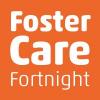Our work in Wales
Director of The Fostering Network in Wales, Colin Turner, gives an update of our work in Wales our new project Fostering Wellbeing.
The Fostering Network in Wales has a long history of delivering targeted programmes and interventions that contribute to transforming the lives of hundreds of children and young people who are looked after. Currently, over four-fifths of the children in care who are looked after away from home and family are being looked after by foster carers, and our role in supporting those carers and advocating for them has never been more important.
For some time there has been a strong consensus in Wales that there is a need for a National Fostering Framework. Through working with Welsh Government and colleagues from across the fostering sector we have been vociferous in our influencing activity to address some of the key challenges that are threatening to undermine the effectiveness of fostering services in Wales. For example, the involvement which young people have in their care planning issues to do with recruitment and retention of foster carers, the support, protection, status, respect and recompense afforded to foster carers and, in particular, the relationships between local authorities and independent fostering providers.
As a member of the Strategic Steering Group associated to The National Fostering Framework we have been pleased to contribute to a strategic plan aimed at transforming fostering provision in Wales. We need to be assured that foster carers will be available to children and young people who need them, in sufficient numbers, to play their crucial role in providing children in care with the health, well-being and future prospects they need and deserve.
The last 12 months
The past year has been particularly exciting for us in Wales, as we have seen two of our major programmes, Confidence in Care and Fostering Excellence, continue to make a significant contribution to improving outcomes for looked after children.
Confidence in Care is transforming the delivery of foster, kinship and residential care, by improving the confidence, competence and skills of carers by using an evidence-based approach to care and peer support. The programme continues to add immense value to statutory provision and with robust evaluation in place will evidence of how to successfully improve outcomes for children.
The funding we receive for our Fostering Excellence Programme continues to allow us to support fostering families across Wales, as they look after over 4,200 fostered children and young people every day. This support includes Fosterline Wales which provides a high quality, bi-lingual information and advice line for foster carers and other fostering professionals. We are also using the funding to support local authorities with the recruitment and retention of foster carers, helping to deliver the Foster Carers’ Charter in Wales, and the establishment of an ambassadors scheme for foster carers, fostered children and young people.This funding has also allowed us to bring The Fostering Network’s pioneering Fostering Achievement model to Wales, enabling foster carers, teachers and social workers to gain the skills, competence and confidence needed to help inspire and equip children to fulfil their potential.
Another of our key roles is to promote the educational needs and attainment of looked after children. We have worked closely with Cardiff University (CASCADE) and disseminated the important messages contained within their report - 'Understanding the Educational Experiences and Opinions, Attainment, Achievement and Aspirations of Looked After Children in Wales'.
Our new programme Fostering Wellbeing combines social pedagogic principles and learning from our Head, Heart, Hands programme, with core elements of our education focused activities from London Fostering Achievement. This hybrid model will deliver a holistic programme, predicated on wellbeing and in alignment with the Government’s narrative in Wales. The programme recognises that in improving outcomes, multi-agency working through a partnership framework across social services, health and education is essential.





